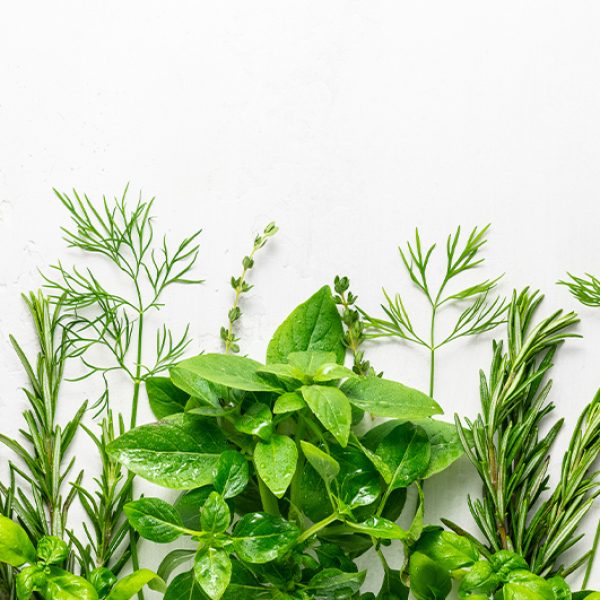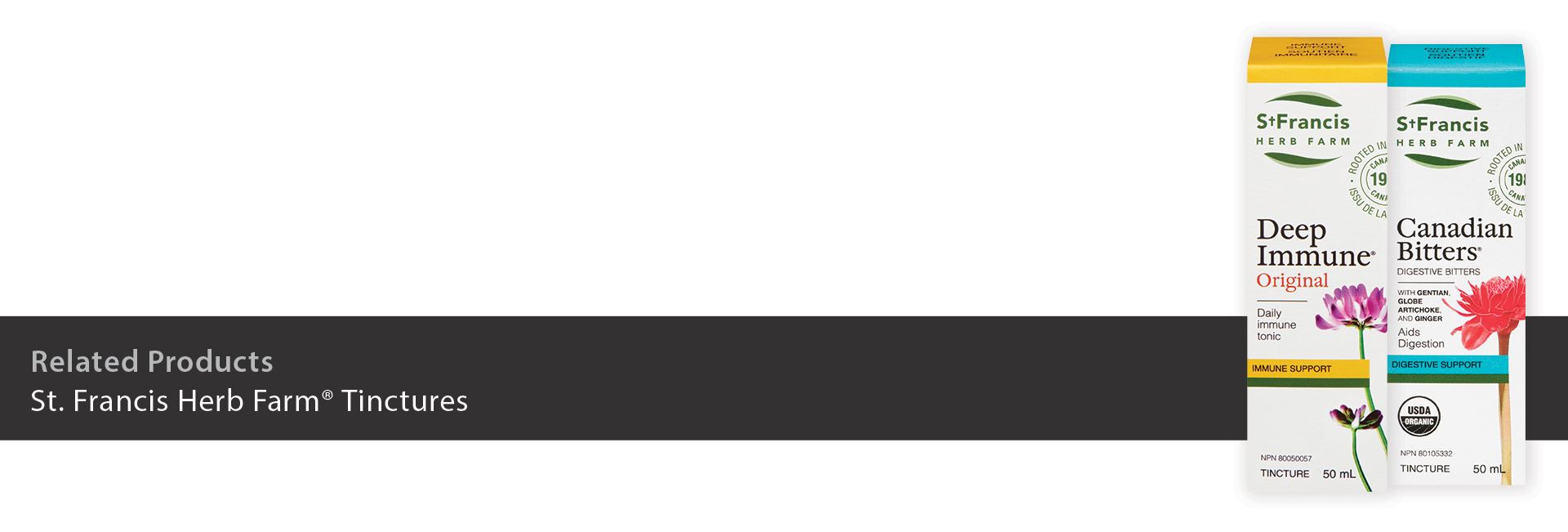

Plant Medicine 101
We are often asked, “what are tinctures?” and “why should I take herbs in tincture form?” Read on to learn the therapeutic advantages of tinctures and what makes those from St. Francis Herb Farm stand apart from the rest!
What Is a Tincture?
A tincture is a concentrated extraction made from suspending a medicinal plant in a water and alcohol (or other solvent) solution.
Over time, the solvent extracts beneficial components from the plants, after which the mixture is strained and bottled.
Tinctures differ from other liquid herbal preparations like infusions and decoctions in that they extract a greater spectrum of therapeutic compounds from the whole plant and preserve them for much longer.
The Advantages of a Tincture
- Retains the most complete range of a plant’s therapeutic constituents
- Absorbed immediately up entering the stomach
- Requires no digestion, making it valuable for those with compromised digestive function
- High degree of bioavailability
- Flexible administration of dosage
- Small doses can be as effective as large doses of the same herb in another form
- Can be taken internally or applied topically
- Long shelf life (up to 4 years)
Did you know? Tinctures naturally preserve the therapeutic influence of taste, since the healing effect of a medicine begins at ingestion through the mouth (e.g., herbal bitters).
Why St. Francis Herb Farm Tinctures?
Through St. Francis Herb Farm’s Holistic Herb Approach, which combines traditional methods with insights gained from experience, they produce single herb and blended tincture formulations that maximize the healing powers of herbs, to help treat common ailments and support everyday health.
Their premium, plant medicine tinctures are the result of:
30 Years of Experience
Making tinctures is a delicate process that considers many factors in creating remedies of the highest quality and effectiveness; it is as much a craft as a science! As skilled herbalists with respect for and a mastery of the traditional methods, St. Francis Herb Farm has been in the business of making tinctures for over 30 years.
Strict Sourcing and Herb Quality Protocols
St. Francis Herb Farm are notoriously fastidious in their selection of herbs. Wherever possible, they source locally grown Canadian herbs and are uncompromising in choosing only plants of the highest grade and quality.
Commitment to Organic Ingredients
They were focused on sourcing organic herbs long before “organic” became fashionable. Of their herbs and plant medicines, all but a select few—those impossible to obtain otherwise—are Certified Organically Grown, sourced from their most trusted and reputable suppliers.
Fine-tuning their commitment to quality, they also introduced Certified Organic alcohol into their tincture line. Now, over 125 of their tinctures are Certified Organic and carry the official logo.
Tailoring the Process to Fit the Herb
Accessing an herb’s most powerful medicinal benefits requires a deep knowledge of each herb’s unique characteristics. If handled improperly, an herb’s chemical and physiological benefits to the user may never be fully realized. There are several different elements to consider:
- Using recently harvested herbs. Part of traditional knowledge is understanding whether to tincture an herb when it’s fresh or when it’s dried.
- Herb-specific grinding. They have the experience to know if an herb works better when finely ground or coarsely ground.
- Choosing maceration liquid. The liquid used in the process can be water, alcohol, glycerine, or a combination. Knowing which ones to use and how much of each are two pieces of the puzzle.
- Length of process. The maceration time for each herb varies, as each carries its own set of chemical characteristics.
- Tinctures and Ratios. The proportion of a medicinal plant in relation to its liquid base is expressed as a ratio. A 1:4 ratio, which is typical of St. Francis Herb Farm’s tinctures made from dry herbs, means that every 4 ml of the final preparation has been made from 1 gram of plant material. On the other hand, fresh herb ratios tend to be 1:1 or 1:2 because of the moisture that already exists in the plant.
The commitment to quality and efficacy makes St. Francis Herb Farm a valuable resource to professionals. They are the tincture supplier of choice for the Canadian College of Naturopathic Medicine.

